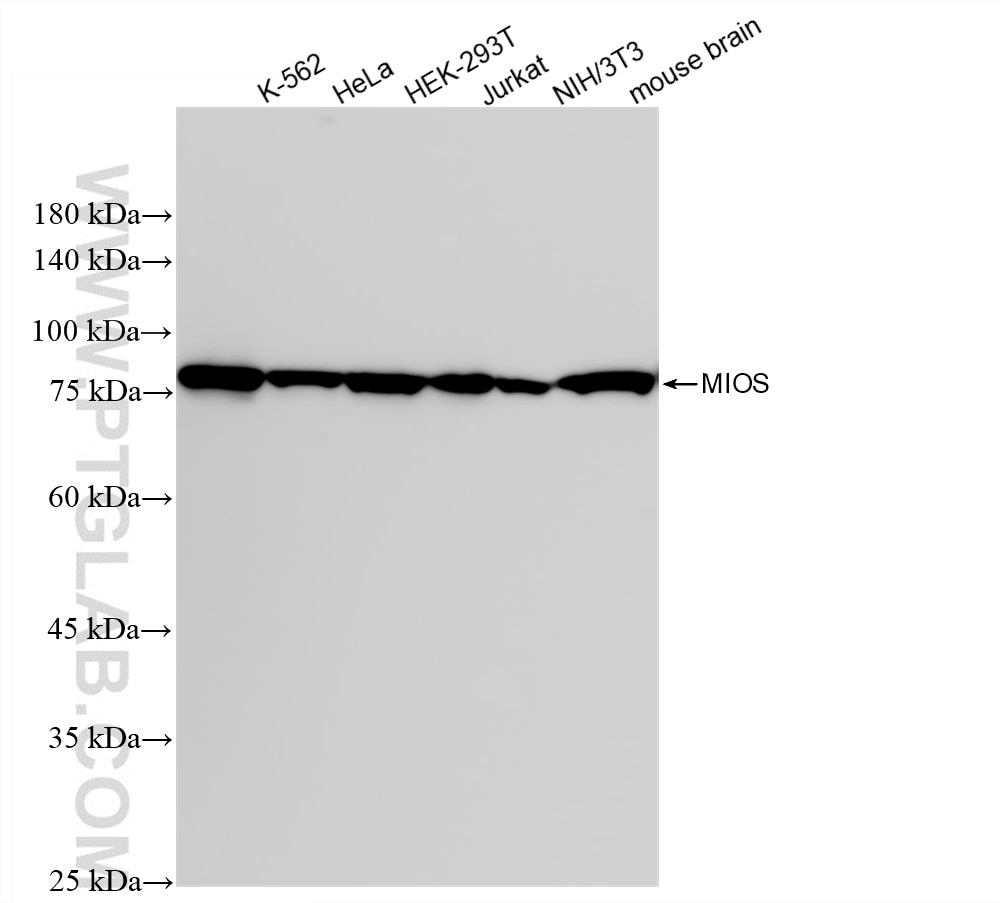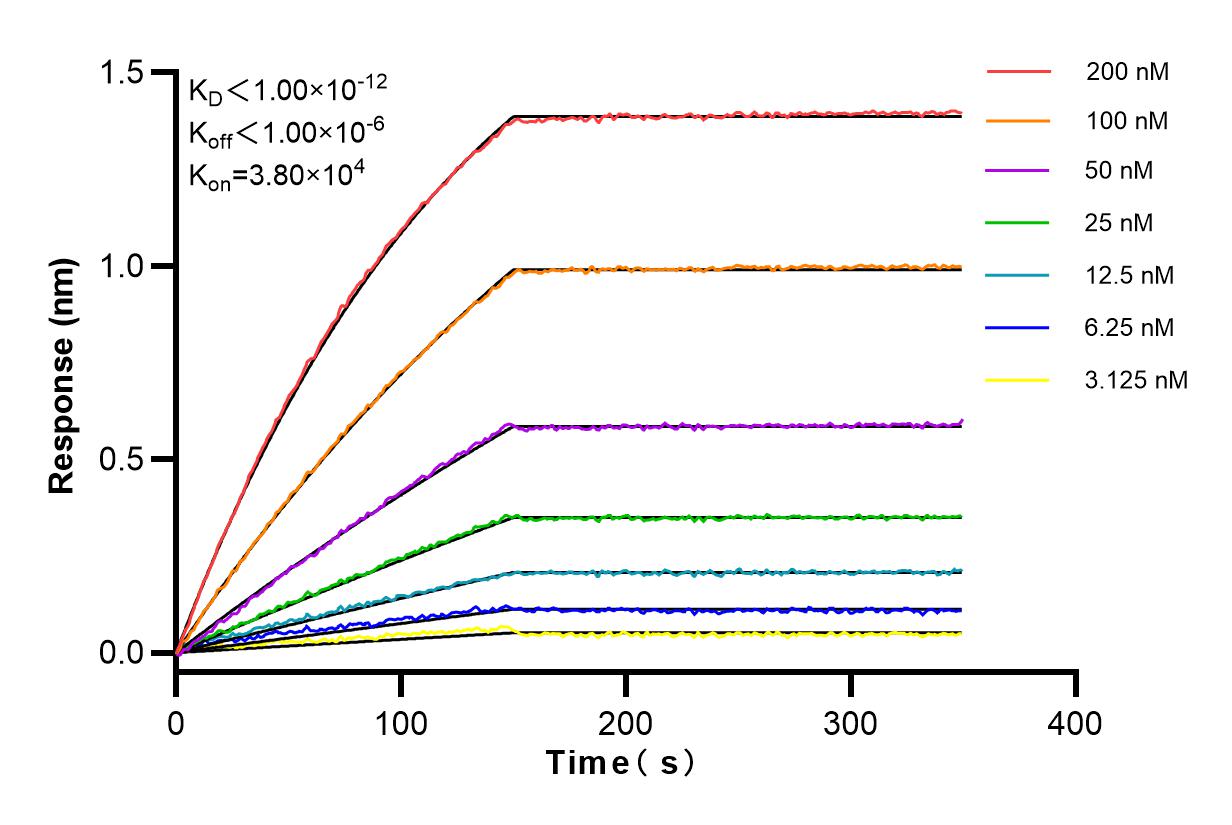Validation Data Gallery
Tested Applications
| Positive WB detected in | K-562 cells, HeLa cells, HEK-293T cells, Jurkat cells, NIH/3T3 cells, mouse brain tissue, |
Recommended dilution
| Application | Dilution |
|---|---|
| Western Blot (WB) | WB : 1:2000-1:10000 |
| It is recommended that this reagent should be titrated in each testing system to obtain optimal results. | |
| Sample-dependent, Check data in validation data gallery. | |
Product Information
83856-5-RR targets MIOS in WB, ELISA applications and shows reactivity with human, mouse samples.
| Tested Reactivity | human, mouse |
| Host / Isotype | Rabbit / IgG |
| Class | Recombinant |
| Type | Antibody |
| Immunogen | MIOS fusion protein Ag15148 相同性解析による交差性が予測される生物種 |
| Full Name | missing oocyte, meiosis regulator, homolog (Drosophila) |
| Calculated molecular weight | 875 aa, 99 kDa |
| Observed molecular weight | 82 kDa |
| GenBank accession number | BC005883 |
| Gene Symbol | MIOS |
| Gene ID (NCBI) | 54468 |
| RRID | AB_3671441 |
| Conjugate | Unconjugated |
| Form | Liquid |
| Purification Method | Protein A purfication |
| UNIPROT ID | Q9NXC5 |
| Storage Buffer | PBS with 0.02% sodium azide and 50% glycerol , pH 7.3 |
| Storage Conditions | Store at -20°C. Stable for one year after shipment. Aliquoting is unnecessary for -20oC storage. |
Background Information
The mechanistic target of rapamycin complex 1 (mTORC1) controls growth by regulating anabolic and catabolic processes in response to environmental cues, including nutrients. Amino acids signal to mTORC1 through the Rag GTPases, which are regulated by several protein complexes, including GATOR1 and GATOR2. GATOR2, which has five components (WDR24, MIOS, WDR59, SEH1L, SEC13), is required for amino acids to activate mTORC1. PMID: 35831510
Protocols
| Product Specific Protocols | |
|---|---|
| WB protocol for MIOS antibody 83856-5-RR | Download protocol |
| Standard Protocols | |
|---|---|
| Click here to view our Standard Protocols |

